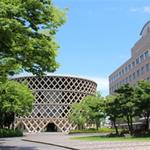Prefectural University of Hiroshima (PUH) is a public university located in Hiroshima Prefecture, Japan. It was established in 2005. The university was formed by the merger of the former Prefectural University of Hiroshima Women's University, the former Hiroshima Prefectural University, and the former Hiroshima Prefectural University of Health and Welfare. The following is a detailed introduction to Prefectural University of Hiroshima, including its history, subject settings, educational characteristics, campus facilities, rankings, etc.
Basic Information
Name: Prefectural University of Hiroshima (Japanese: 県立広島大學、けんりつひろしまだいがく)
English Name: Prefectural University of Hiroshima (PUH)
Abbreviation: PUH
Address: 1-1-71 Ujina-Higashi, Minami-ku, Hiroshima City, Hiroshima Prefecture
Establishment Date: 2005
Type: Public University
History
1920: Former Prefectural Hiroshima Women's University was established.
1949: Former Hiroshima Prefectural University was established.
1970: Former Hiroshima Prefectural University of Health and Welfare was established.
2005: Three universities merged to form Prefectural University of Hiroshima, aiming to integrate resources and improve education and research levels.
Discipline
Prefectural University of Hiroshima has multiple faculties and disciplines, mainly focusing on the fields of humanities, social sciences, health and welfare, and natural sciences. The specific disciplines are as follows:
Department of Humanities and Social Sciences
Department of Humanities
Department of Social Sciences
Department of Health and Welfare
Department of Nursing
Department of Health
Department of Welfare
Department of Science
Department of Biological Sciences
Department of Chemistry
Department of Physics
Graduate School
Department of Humanities and Social Sciences
Department of Humanities
Department of Social Sciences
Department of Health and Welfare
Department of Nursing
Department of Health and Welfare
Department of Science
Department of Biological Sciences
Department of Chemistry
Department of Physics
Educational Features
Practical Education: Emphasis on the combination of theory and practice, providing a wealth of internships and practical activities to help students accumulate practical work experience.
International Education: Actively promote international education, establish cooperative relations with universities in many countries, and provide overseas exchange programs.
Professional Training: Focus on students' professional skills training, and cultivate professionals with solid theoretical foundation and practical ability.
Career Support: There is a dedicated career guidance center that provides services such as career planning, employment consultation and internship recommendations.
Campus Facilities
Library: It has rich book resources and a modern reading environment.
Laboratory: Equipped with advanced experimental equipment to support scientific research and practical teaching.
Sports facilities: including gymnasiums, sports fields, etc., to promote students' physical and mental health.
Student dormitories: provide comfortable accommodation environment, convenient for students to live and study.
Research Center
Humanities and Social Sciences Research Center: focuses on the research of humanities and social sciences.
Health and Welfare Research Center: studies issues in the fields of health and welfare, and provides intellectual support for local development.
Natural Science Research Center: conducts research in the fields of biology, chemistry and physics.
Student Activities
Club Activities: There are various student clubs covering academic, cultural, sports and other fields.
Volunteer Activities: Encourage students to participate in community services and social welfare activities to cultivate a sense of social responsibility.
Admission Requirements
Entrance Examination: Usually includes written examinations and interviews. Please refer to the school's official website for specific requirements and procedures.
International Students: Accept international student applications, subject to language proficiency and other relevant requirements.
Ranking
Ranking in the country:
According to the 2023 Japanese University Rankings, Hiroshima University ranks among the top public universities, especially in the Department of Humanities and Social Sciences, the Department of Health and Welfare, and the Department of Science.
Nationally, Hiroshima University ranks in the top 150 in the comprehensive ranking of public universities.
World ranking:
Due to the relatively small visibility and influence of public universities worldwide, Hiroshima University does not rank prominently in international rankings. However, in specific subject areas such as humanities and social sciences and health and welfare, the university has a certain influence in the Asian region.
Contact information
Phone: +81-82-251-9540
Fax: +81-82-251-9541
Email: admission@puh.ac.jp
School motto
School spirit: To cultivate talents with high professional quality and practical ability, and contribute to the development and progress of society.
Educational philosophy: Focus on the cultivation of comprehensive quality and professional knowledge, and strive to cultivate talents with social responsibility and leadership.
Featured courses
Humanities and social science courses: A special "Humanities and Social Science Course" is set up to cultivate students' critical thinking and humanistic literacy.
Health and Welfare Course: A "Health and Welfare Course" is provided to help students master knowledge and skills in the fields of health and welfare.
Employment situation
Employment rate: The employment rate of graduates of Hiroshima University is high, and many graduates have found satisfactory jobs in the fields of education, medical care, health welfare and scientific research.
Notes
Reputation: Hiroshima University enjoys a good reputation in Hiroshima Prefecture and throughout Japan, especially in the fields of humanities and social sciences, health welfare and natural sciences.
Further study: Graduates can choose to continue their studies in graduate school or other higher education institutions, or they can directly enter the workplace.
The above is a basic introduction to Hiroshima University. If you have more specific questions or need detailed information, it is recommended to visit the school's official website or contact the relevant department of the school directly.
-
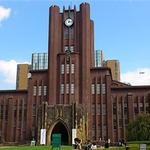
The University of Tokyo
-
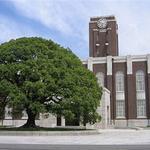
Kyoto University
-
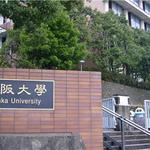
Osaka University
-
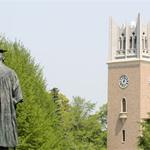
Waseda University
-

Hitotsubashi University
-
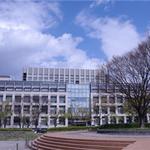
Nagoya University
-
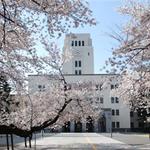
Tokyo Institute of Technology
-
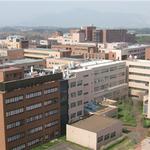
University of Tsukuba
-

Keio University
-
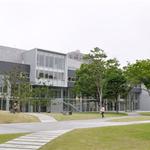
Tohoku University
-

Mesoamerican University
-

Istmo University
-

Mariano Galvez University of Guatemala
-

Regional University of Guatemala
-

Galileo University
-

Francisco Marroquín University
-

Rafael Landívar University
-

University of the Valley of Guatemala
-

University of San Carlos of Guatemala
-

Technological Institute of Tlaxcala Plateau
-

Golfo University
-

Technological University of South Sonora
-

Technological University of Huejotzingo
-

Tizimín Institute of Technology
-

Chilpancingo Institute of Technology

